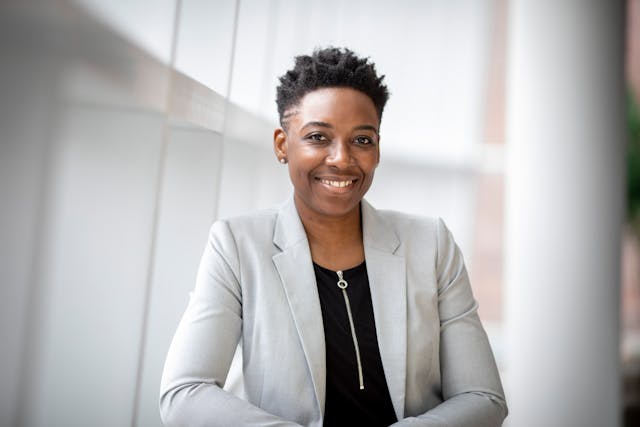10 Things Confident People Never Say

Confidence isn’t loud. It doesn’t need to flex, exaggerate, or constantly seek validation. True confidence shows up in subtle ways—how someone carries themselves, how they handle criticism, how they speak to others, and most importantly, how they speak to themselves.
You can spot real confidence not just by what people do, but by what they don’t say. Because confident people don’t need to tear others down to feel good about themselves. They don’t talk themselves out of their potential. And they don’t waste time doubting their worth.
Here are 10 things confident people never say—and why eliminating these phrases can transform the way you carry yourself.
1. “I’m probably wrong, but…”
Confident people own their voice. They don’t water down their opinions before they even finish the sentence. You’ll rarely hear them start with disclaimers like “This might sound stupid…” or “Sorry if this is a bad idea…”
Why? Because they trust that their thoughts are valid. They don’t need to be right all the time, but they do know that their voice deserves to be heard.
What to say instead: “Here’s what I think…” or “Let me offer another perspective.”
2. “I’m just lucky.”
When something good happens—whether it’s a job, an award, or personal success—confident people don’t chalk it up to luck. They acknowledge the work, growth, and effort that got them there.
Downplaying success might seem humble, but constantly doing it signals that you don’t believe in your own capability.
Confident people accept compliments. They know they earned their place at the table.
What to say instead: “I worked hard for this, and I’m proud of it.”
Don’t Miss: 10 Psychology Tricks That Are Used By High IQ People
3. “That’s just how I am.”
This phrase is often used to avoid growth or excuse poor behavior. But confident people don’t hide behind rigidity. They’re self-aware. They’re open to feedback. And they’re willing to evolve.
They understand that identity isn’t fixed—it’s flexible. And being confident means being secure enough to change.
What to say instead: “That’s something I’m working on.”
4. “I’m not as good as them.”
Confident people don’t constantly compare themselves to others. They understand that everyone has their own path, pace, and purpose.
Insecurity thrives on comparison. But confidence? Confidence stays in its lane. It celebrates others without questioning its own worth.
What to say instead: “I admire them—and I’m proud of where I am too.”
5. “It’s too late for me.”
Confident people don’t believe in expiration dates for dreams. They understand that progress isn’t linear, and starting late is better than never starting at all.
This kind of thinking—“I missed my chance”—comes from fear, not fact. Confidence looks at setbacks and says, “Okay, what’s next?”
What to say instead: “I’m ready to start from where I am.”
You May Like: 10 Psychology Signs to Spot Haters
6. “I don’t belong here.”
Even in unfamiliar spaces, confident people carry themselves like they do belong—because they understand that worthiness isn’t about permission. It’s about presence.
They don’t shrink in rooms that intimidate them. They don’t talk themselves out of opportunities. They show up fully, even when they’re nervous.
What to say instead: “I may be new here—but I’ve earned my seat.”
7. “It’s all their fault.”
Confident people take responsibility. They don’t point fingers when things go wrong. Instead, they ask, “What was my part in this? What can I learn?”
Blame deflects. Confidence reflects. It’s not about taking on all the fault—but owning your piece and using it to grow.
What to say instead: “I see where I went wrong, and here’s what I’ll do differently.”
Don’t Miss: 10 Cheat Codes I Wish I Knew at 30
8. “I’ll never be able to…”
Confident people aren’t delusional—but they don’t box themselves in with limiting language either. They might not know how they’ll succeed yet, but they don’t rule it out before they’ve even tried.
Language like “never,” “can’t,” or “not good enough” chips away at possibility. Confidence speaks the language of effort, not limits.
What to say instead: “I don’t know how yet—but I’m willing to figure it out.”
9. “They’re probably better than me.”
Confident people admire others without letting it trigger insecurity. They understand that someone else’s excellence doesn’t threaten their own.
Instead of mentally shrinking every time someone else shines, they let it inspire them. They ask, “What can I learn from this?” rather than “Why am I not there?”
What to say instead: “They’re great—and I’m growing too.”
10. “What will people think?”
Confident people don’t let the fear of judgment rule their lives. That doesn’t mean they never care—but they don’t depend on outside approval to validate their choices.
They dress how they want. Speak what they believe. Try things even if they might fail. Because they know the only opinion they have to live with every day is their own.
What to say instead: “Does this align with who I want to be?”
You May Like: How To Read People Without Them Knowing
Final Thought: Confidence Isn’t Loud—It’s Secure
Confident people don’t need to dominate conversations or always be right. Their power comes from quiet self-assurance. They know who they are, what they’re capable of, and what they bring to the table.
And most importantly? They speak to themselves with kindness, ownership, and belief.
If you want to become more confident, start by changing the way you speak—about yourself, about others, and about what’s possible.
Because your words aren’t just reflections of your mindset—they’re blueprints for your reality.
FAQs
- Can I become confident even if I’ve always struggled with self-doubt?
Absolutely. Confidence is learned. It starts with awareness, practice, and consistency. Every time you challenge your negative self-talk, you’re building that muscle. - Isn’t it arrogant to say things like “I earned this” or “I belong here”?
No. Arrogance is about superiority. Confidence is about self-assurance. You can believe in yourself without diminishing others. - What’s a quick way to sound more confident?
Avoid minimizing phrases like “I think,” “I’m not sure, but…” or “This might be silly.” Speak clearly, and stand by your words—even if your voice shakes. - Why do I downplay my success so often?
It could be a habit, trauma response, or fear of being seen. Try practicing receiving compliments without deflecting. Start small, and build from there. - How do I stop comparing myself to others?
Shift focus inward. Celebrate your own progress. Limit social media if needed. And remind yourself: someone else’s win is not your loss.






